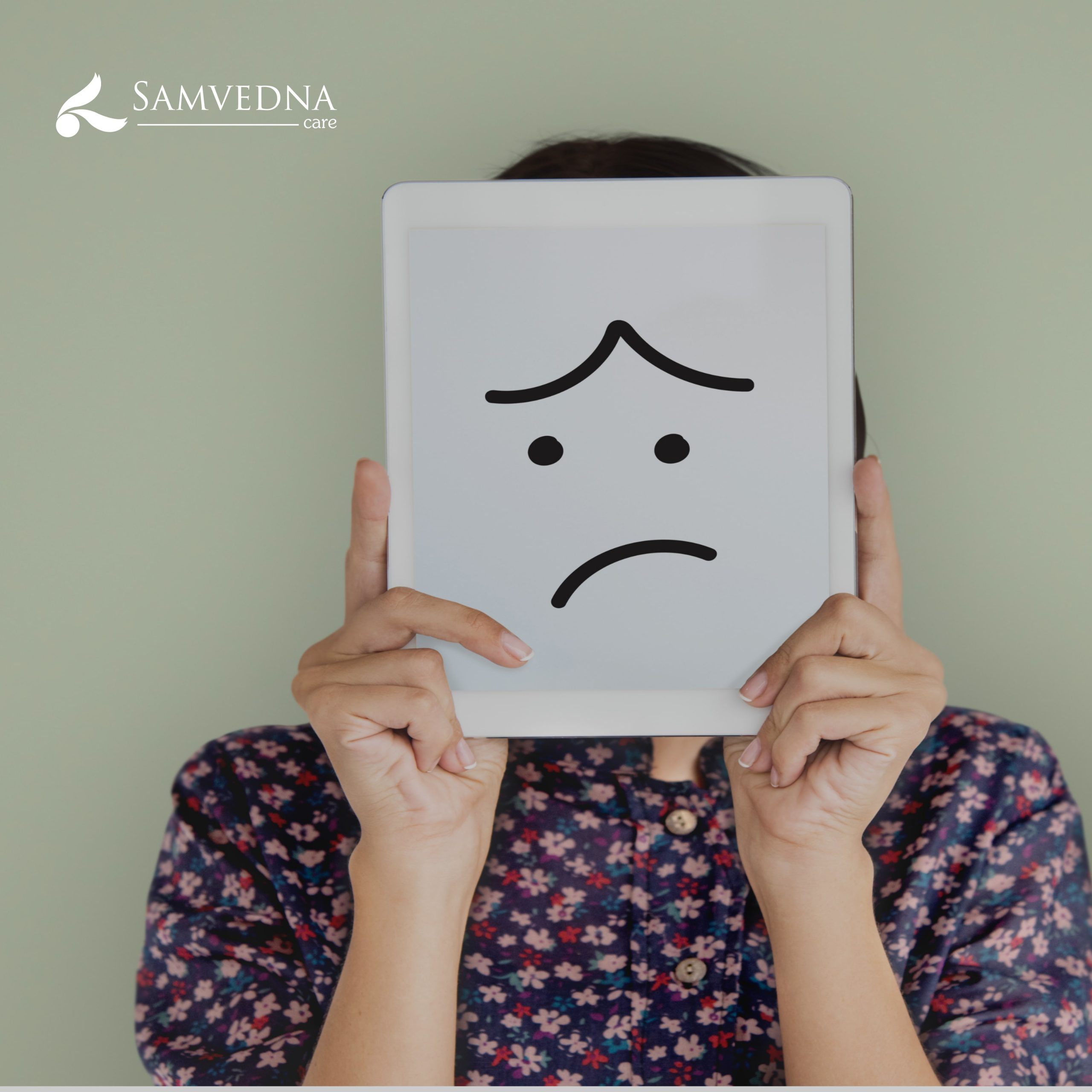Contact Us




Emotions are part and parcel of the human being. Positive or negative, they consume our thoughts, actions, and connections. However, the negative ones will bring about unhealthy effects on mental and physical health if not managed appropriately in due time. The ability to deal with negative emotions is a basic factor in living a healthy life., and that is what Samvedna Care professionals help people with. As one of the top providers of mental health solutions, we are going to discuss some effective methods to deal with negative emotions and give practical advice for developing a balanced and happier life.
What are Negative Emotions?
Negative emotions are feelings that cause discomfort or distress. Common negative emotions include anger, sadness, frustration, guilt, anxiety, and fear. While it is quite natural for any person to experience such emotions once in a while, the continuous concept of negativity ultimately leads through different paths to stress, anxiety disorders, and physical ailments like high blood pressure or sleeplessness.
It’s necessary to understand that bad feelings don’t mean one is weak or flawed. Actually, such feelings are a survival mechanism that compels human beings to take action concerning hazardous situations. However, a lack of knowledge on how to handle negative emotions in a healthy manner may result in spiralling out of control to the point that they are very destructive by overeating, committing substance abuse, or lashing out at others.
The Impact of Negative Emotions on Health
Before diving into strategies to manage negative emotions, it’s essential to understand the impact they can have on your well-being. Chronic exposure to negative emotions can:
Given these potential consequences, knowing how to handle negative emotions is critical for both mental and physical health.
Strategies for Managing Negative Emotions
1. Acknowledge and Accept Your Emotions
The first step in managing negative emotions is to acknowledge them. Trying to suppress or ignore feelings like anger or sadness can make them stronger and more persistent. Instead of denying their existence, take a moment to recognize what you’re feeling. It’s okay to feel negative emotions; what’s important is how you respond to them.
Once you’ve acknowledged the emotion, accept that it’s part of being human. By accepting your emotions without judgment, you create space to understand and eventually release them. This process of acceptance is essential for anyone who wants to learn how to deal with negative emotions effectively.
2. Identify Triggers
Negative emotions often arise from specific triggers, whether they’re external (like a stressful situation at work) or internal (like self-critical thoughts). Keeping a journal to track your emotions and the events leading up to them can help you identify patterns. Once you understand what triggers your negative emotions, you can take proactive steps to avoid or better manage these situations.
For instance, if you notice that negative emotions arise after engaging in social media, you might limit your time online or focus on more positive activities. Being aware of your triggers empowers you to make healthier choices.
3. Practice Mindfulness
Mindfulness is an excellent tool for handling negative emotions. It involves staying present and observing your emotions without judgment. When you’re mindful, you don’t get lost in your thoughts or allow emotions to take over. Instead, you become a neutral observer, which helps you manage your reactions better.
Practicing mindfulness can be as simple as focusing on your breath for a few minutes when you’re feeling overwhelmed. With regular practice, mindfulness can become a powerful tool in your emotional toolkit for managing negative emotions.
4. Use Positive Self-Talk
Negative emotions often come with negative self-talk, which can perpetuate the emotional cycle. For instance, when you’re angry, you might think, “I’m always failing,” or “I’m not good enough.” These thoughts not only make you feel worse but also prevent you from resolving the issue at hand.
To break this cycle, practice positive self-talk. When a negative emotion arises, challenge the thoughts that accompany it. For example, if you’re feeling guilty about a mistake at work, remind yourself that everyone makes mistakes and that it’s an opportunity to learn and grow. Replacing negative thoughts with positive affirmations helps in dealing with negative emotions more effectively.
5. Engage in Physical Activity
Exercise is one of the most effective ways to deal with negative emotions. Physical activity releases endorphins, which are natural mood lifters. Whether it’s a brisk walk, a gym session, or yoga, moving your body can help reduce stress, anxiety, and frustration.
Not only does exercise improve your mood, but it also offers a healthy outlet for releasing pent-up emotions. The next time you feel overwhelmed by negative emotions, try engaging in some form of physical activity to reset your mind and body.
Conclusion
Learning how to deal with negative emotions is a crucial step toward living a healthier, more balanced life. By acknowledging your emotions, identifying triggers, and practicing mindfulness, positive self-talk, and physical activity, you can gain control over your emotional state.
If you ever find it difficult to navigate these emotions on your own, Samvedna Care offers professional support and resources to help you lead a more emotionally balanced life. Understanding how to deal with negative emotions is a journey, but with these strategies and the right support, you’ll be better equipped to handle whatever life throws your way.
Check your mental wellbeing here and get a complimentary consultation with our team.